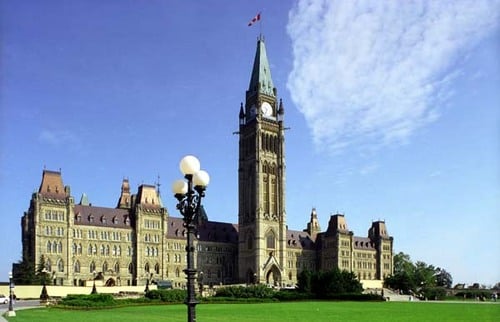Citizenship is the condition of being vested with the rights, duties and responsibilities as a member of a state or nation. Civics is the study of  the rights and duties of citizenship.
the rights and duties of citizenship.
Government is a system by which groups of people make the laws (principles and regulations) that are enforced to guide the affairs of a community. The study of civics explores citizenship, government and public decision making.
Decision Making – one person could decide for the whole group (authoritarian)
– a team could reach a decision (voting or consensus)
– with voting majority rules (the benefits of the many outweigh the benefits of the few)
Consensus decision making respects and listens to individuals to reach a collective decision.
Politics is a human activity in which one person or group of people opposed to another mobilizes support to get power. To govern power is the ability of a group to get its way.
Origins of Canada’s Government
The roots of our government trace back to the French and English.
Canada officially became a sovereign country in 1867.
– The Dominion of Canada was established with the passing of the British North America Act on July 1st, 1867, would be Canada’s Constitution until 1982.
– The British North American Act was later renamed the Constitution Act.
– The new government wanted to preserve Canada’s link with Britain, while at the same time develop into its own uniquely Canadian system.
’’Confederation’’ was the name of the event by which the federation of Ontario, Quebec, Nova Scotia and New Brunswick, formed as one country.
– A strong federal union (confederation) would be formed, each with different responsibilities:
1. Central Government (later known as the Federal Government):
Has the most powers: taxes, criminal law, trade, foreign affairs, and defence.
Had ‘’veto power’’ over the Provincial government.
2. Provincial Government
– Responsible for the rest: education, health, civil law.
Parliament would be bicameral (two houses)
1. The lower branch, ‘’The House of Commons’’, was elected on the basis of population (therefore, the more population, the more representation).
2. The upper branch, ‘’The Senate’’ was to have equal representation and serve as a ‘’sober second thought’’ to the decisions made by the House of Commons.
Statue of West minister (1931)
Before this statue, any laws passed by the Canadian government had to be approved by the British government.
Canada was continually moving towards full independence from Britain and wanted to be able to make their own decisions without the influence of the British.
In 1931, Canada could now change/amend, and make any laws without the influence of the British.
Canada Act (1982)
Although Canada could make its own laws, it still was not able to change the Canadian constitution without the permission of the British parliament.
